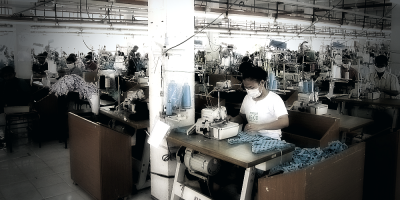
Prime minister Datuk Seri Ismail Sabri Yaakob announced last Saturday that the country’s minimum wage would be revised upward to RM1,500 effective May 1. This is a 25% increase over the old minimum wage of RM1,200.
To a double-income family engaging in entry-level jobs, RM3,000 a month is barely enough for a decent living, and this is only if the couple does not have children.
For labor-intensive, low-profit traditional businesses, the announcement comes as a major shock especially with the coronavirus pandemic is still very much around us.
While unsatisfied with the new measure, the MTUC has to accept the government decision because they had in as early as November 2018 hoped the government would increase the minimum wage to RM1,800 a month.
On the contrary, MEF president Datuk Seri Syed Hussain Syed Husman has urged the government to defer this measure and take into consideration the financial capacities of different economic sectors before deciding whether to fully implement the new measure.
When announcing the new minimum wage scheme, the PM said it would only involve large corporations and GLCs at this juncture while companies with fewer than five employees and rural businesses will be exempted from the new ruling.
The PM said the purpose of increasing the minimum wage is to relieve the financial burden of B40 rural families. However, if the new minimum wage scheme will only apply to urban companies, it will further widen the income disparity for urban households and will not improve the livelihood of low-income families in rural areas.
Additionally, the implementation of the new minimum wage will invariably be trailed by a new wave of inflationary pressure that will further exacerbate the burden of rural residents whose salaries are yet to be revised upward.
Several years ago, the per capita GDP of KL reached a high of RM115,000, almost nine times higher than the bottom-ranked Kelantan’s RM13,600, and more than triple of other low-income states such as Perak, Terengganu, Sarawak, Sabah, Perlis and Kedah. As such, the new minimum wage scheme will only aggravate the urban-rural wealth disparity.
Currently, the country’s minimum wage is only RM1,200, or about a third of our 2021 per capita GDP of RM43,200. This ratio will narrow to 42% after the May 1 increase in minimum wage, putting us on par with countries such as the UK (42%), Thailand (43%), the Netherlands (43%), Belgium (44%) and Germany (46%).
Although after the revision the country’s minimum wage of US$4,285 a year is still way below that of developed countries, it is only second to Singapore and Brunei in this region. It will be a positive development to help take low-income families out of poverty.
Companies which have been profiteering by exploiting their employees should now look for a decent exit strategy!
Malaysia started to introduce the minimum wage scheme in 2013, with RM900 per month for West Malaysia and RM800 for Sabah and Sarawak. That was an important policy by the government then because as what we know, many people in east coast states made less than RM800 a month at that time, lower in East Malaysia. Many of them did not even make RM1,200 after working for ten years!
Three more revisions were later made in July 2016, January 2019 and February 2020, taking the minimum wage eventually to the current level of RM1,200 a month.
Prior to 2013, Malaysian workers were an underprivileged group, constantly exploited by their irresponsible employers. As a result, the government had to step in and take the initiative to map out the minimum wage scheme in order to help deliver low-income families out of bitter poverty.
When the government set the minimum wage at RM900 a month back then, many local companies were also grumbling they were unable to survive, although in reality it was entry level employees who could hardly survive with their meagre salaries.
Companies have to readjust their business strategies to bolster the impact of rising operating costs.
Survival for the fittest. Companies which have been profiteering by exploiting their employees should now look for a decent exit strategy!
The so-called “management guru” Peter Drucker famously said, “Profit for a company is like oxygen for a person. If you don’t have enough of it, you’re out of the game.” Unfortunately, the quote has been upheld by many “entrepreneurs” worldwide for decades. But to us, a company is out of the game if it fails to give its employees a better life.
But to be honest, the 25% increase in minimum wage this time round is a little too steep, and it happens only about two years after the last adjustment in February 2020, just before the coronavirus pandemic spread wildly across the planet.
Many Malaysian companies have been struggling hard these past two years to stay afloat, and the 25% increase in minimum wage has simply come untimely, although it does offer an opportunity for low-income families to lead a better life.
ADVERTISEMENT
ADVERTISEMENT








































